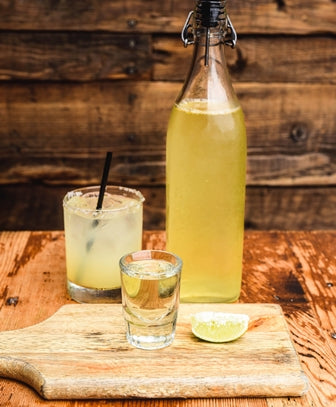Both cheese and wine can come in a range of variations and flavors and both can also change depending on how long they’ve had to age.
An aged gouda, for instance, will have a richer, slightly nuttier, taste to it than a young gouda, while it’s no secret that a bleu cheese will become even more pungent – in both flavor and scent – over time.
Wines can also be light and fresh, or earthy and full-bodied depending on the type of wine and how long it has aged.
With so many factors going into each cheese and wine’s flavor profile the pairing options are nearly endless but there are still a couple easy tricks in mind to pair like a pro.
Pair by intensity
Consider the cheese and wine’s flavor intensities – a strong-tasting cheese is most likely going to need a strong, full-bodied wine to match.
Pair by complementary flavors
Another way to think about pairing by intensity is pairing wine and cheese by complementary flavors. For instance, a mild-flavored yet salty parmesan could go with a light and refreshing prosecco, or a luscious creamy brie could go with a complex red.
Pair by contrasting flavors
Alternatively, pairing by contrasting flavors can also work as the flavors tend to balance each other out and refresh your taste buds. For example, an dry white wine could also pair nicely with that rich same brie as the wine's acidity would cut the cheese's creaminess and bring some balance to your palate.
Pair by ‘what grows together goes together’
Wines tend to pair well with the ingredients and foods that are also grown or made in a specific region, like brie and Champagne for example, or prosecco and parmesan. (This tip also helps for when you're trying to build the perfect cheese board. Spanish manchego, for instance, can be paired with zingy chorizo.)
A few of our favorite wine and cheese pairings
For fresh soft cheeses that boast a mild flavor and creamy texture, such as ricotta, burrata or chèvre (all of which you can easily making with our cheese making kits), try a crisp white, sparkling wine or dry rose.
For semi-hard cheese, such as a young cheddar, Monterey Jack, or havarti, choose a medium-bodied wine, like a chardonnay or pinot noir.
For bleu cheeses, like stilton or gorgonzola, go for a rich, full bodied sweet wine to balance out the cheese's strong flavor and saltiness. Bleu cheese paired with a port is always a go-to favorite. (We share some of our other favorite - and a little surprising - flavor pairings, like whiskey and aged parmesan, here.)
Wine and cheese pairing becomes even more fun when you're pairing wines with cheese you've made yourself! A cheesemaking kit can help you get started with simple ingredients that can make a number of different types of cheeses. Check out all of our cheese making kits available online here.
Leave a comment
Comments will be approved before showing up.




Paula Butler
Author